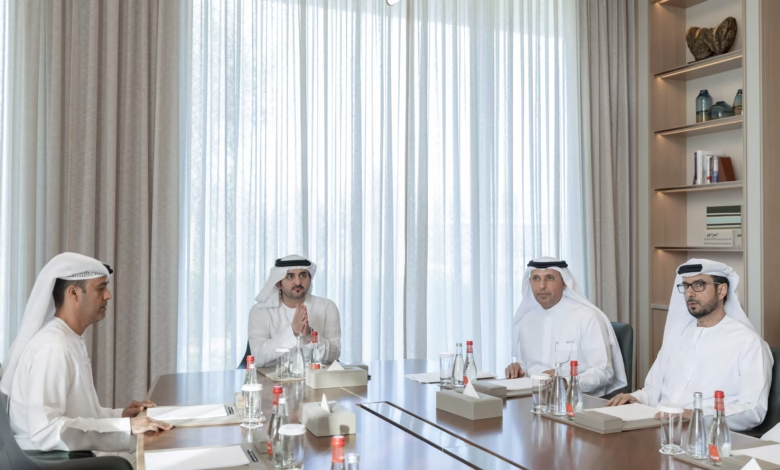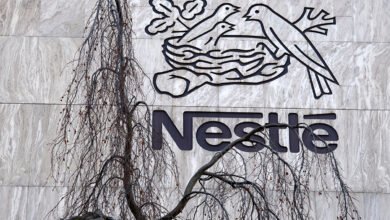
Dubai Economic Security Centre Unveils Strategy Under Sheikh Maktoum
Sheik Maktoum bin Mohammed bin Rashid Al Maktoum’s review of Dubai’s Economic Security Center strategy for 2025-2030 highlights the city’s role as a global trade and business hub. Dubai’s First Deputy Ruler, Deputy Prime Minister, and Minister of Finance demonstrates the emirate’s steadfast dedication to economic growth and stability. The Economic Security Center of Dubai has developed a detailed strategy that rests on six key pillars. These pillars include economic risk prediction, encouraging economic foresight, and curbing financial crimes. This strategic framework will strengthen Dubai’s position by creating new investment opportunities. The framework also establishes strong measures to track economic trends and prevent potential risks.
Strategic Vision and Core Objectives
The Dubai Economic Security Center has created a complete framework that lines up with the Dubai Economic Agenda D33. This strategy turns the center’s mission into clear objectives. It focuses on creating investment opportunities and economic forecasts to make Dubai stronger as a global economic hub.
The strategy has three main goals. These include building a safe and stable economic environment, making risk management systems better, and creating transparency and accountability. Dubai has put proactive measures in place to protect its achievements. These measures help ensure continued growth by reducing potential economic risks.
The Economic Security Center’s vision includes specialized studies, recommendations, and training programs that raise economic awareness. The strategy sets performance indicators that focus on sustainability, economic growth, and compliance monitoring. These indicators help curb corruption, money laundering, and terrorism financing.
The Center watches for economic crises and negative trends through prevention and oversight. The strategy shows dedication to adaptability and puts special focus on advanced technologies and cross-sector teamwork. This forward-looking approach helps build the city’s economic strength and encourages sustainable development. Dubai continues to be a trusted global destination for investment.
Six Pillars of Economic Security
Dubai’s Economic Security Center builds its strategy on six key pillars that are the foundations of its economic security framework. Advanced monitoring systems and analytical tools help predict economic risks in the first pillar. The second pillar focuses on economic foresight and development, which helps the center prepare for future market changes.
The third pillar aims to curb economic crimes. The center works with the judiciary to prevent corruption, fraud, money laundering, and terrorism financing. The fourth pillar improves strategic collaborations through partnerships with regional and international organizations to strengthen Dubai’s economic security.
We focused on preparing for future challenges in the fifth pillar. This includes monitoring economic crises and negative trends. The center uses preventive actions and oversight mechanisms after events to keep the economy stable. The sixth pillar makes public participation in economic security a priority, because a strong economic environment needs community involvement.
The center carries out these pillars through specialized studies, recommendations, and training programs. Their approach has complete monitoring of sustainability indicators, economic growth metrics, and compliance standards. This strategy helps the center protect Dubai’s economic interests while it participates in global financial and economic councils to build international cooperation.
Implementation and Governance
Dubai’s Economic Security Center is a 7-year old independent public entity that operates under Law No. 4 of 2016. The center follows strict governance protocols led by its Executive Director who reports to the Head of Dubai’s Executive Council. A detailed monitoring system covers financial markets, commodities markets, free zones, and the Dubai stock exchange.
The center’s governance structure protects confidential information about cases, informants, and staff members. Their process monitors suspicious activities, currency trading, and precious metals transactions. The center works closely with judicial authorities to pursue legal action against economic crimes.
The center keeps watch over these key areas:
- Money flow and spending of charitable organizations
- Financial instrument movements in and out of Dubai
- Trading activities in listed and unlisted securities
The center can ask for bank account details and stop trading activities when needed, while working with relevant authorities. Their strategy focuses on taking action early through specialized training programs to develop technical expertise. These detailed governance mechanisms help the Economic Security Center of Dubai enforce regulations and protect the emirate’s economic interests.
Dubai’s Economic Security Strategy 2025-2030 shows the emirate’s dedication to green practices and economic growth. The strategy builds a resilient infrastructure through six key pillars. These pillars help predict and manage economic risks while boosting Dubai’s role as a global financial hub. The Economic Security Center’s detailed governance structure will give proper implementation of these initiatives in various sectors.
The strategy lines up with Dubai Economic Agenda D33, which reflects the emirate’s innovative approach to economic growth. The center works closely with judicial authorities to build a strong foundation. This partnership helps curb financial crimes and protect market integrity. On top of that, it uses specialized training programs and advanced monitoring systems to tackle future economic challenges.
This strategic framework, supported by Law No. 4 of 2016, makes Dubai a trusted hub for global investments. The emirate takes a proactive approach to economic security and uses detailed implementation methods. This approach creates new standards for financial oversight and risk management in the region.






